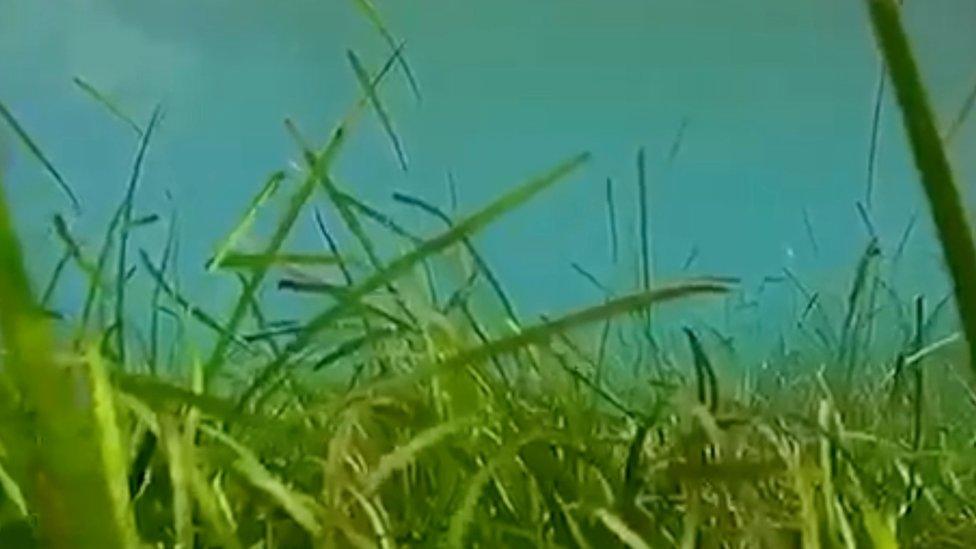Largest UK seagrass restoration project to end
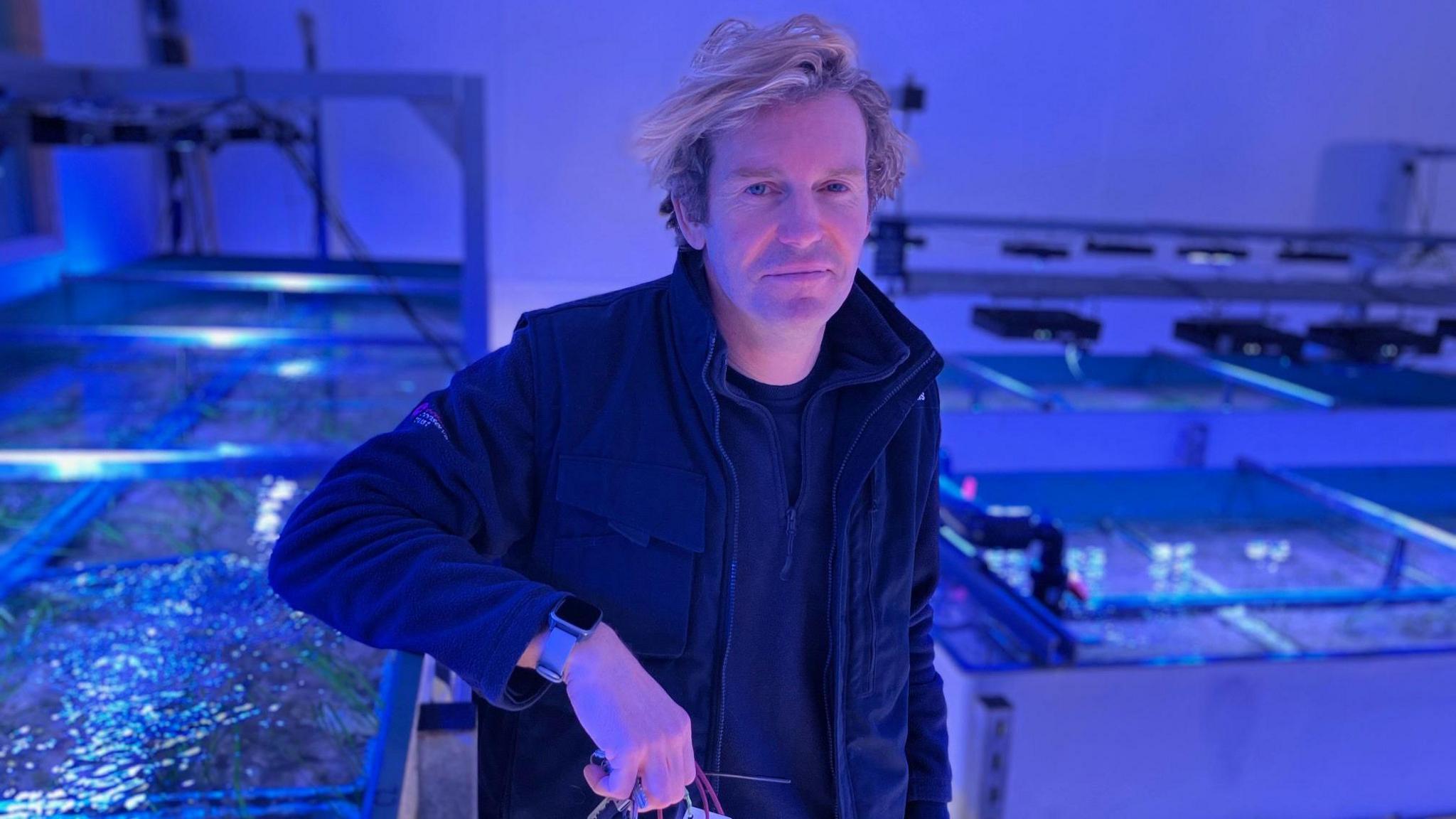
Mark Parry said seagrass acted "like a filter to remove organic carbon from the water"
- Published
The largest seagrass restoration project in the UK has come to an end after five years of work, with some areas showing signs of "recovery".
The £2.5m project, funded by the EU LIFE programme and led by Natural England in partnership with Ocean Conservation Trust (OCT), Marine Conservation Society, The Royal Yachting Association and Plymouth City Council/Tamar Estuaries, aimed to reverse decades of decline which had seen seagrass disturbed and wiped out.
Seagrass can absorb carbon dioxide faster than trees, making it a natural defence against climate change.
The project covered five sites on the South coast, with a total of eight hectares (20 acres) of seagrass restored in Plymouth Sound and the Solent Maritime conservation areas.
'Moving into a recovery phase'
In Falmouth and the Isles of Scilly, OCT said the focus was on education to reduce the damage caused by the anchoring and mooring of boats in sensitive habitats.
Mark Parry, head of habitat restoration at OCT, said seagrass acted "like a filter to remove organic carbon from the water".
He said: "They bury that within the sediments and they bury it for very long periods of time.
"Within the five special areas of conservation there does seem to be some reversal within the health of that system. So they were considered to be in unfavourable condition and it's early days, but two of the sites seemed to be moving into a recovery phase."
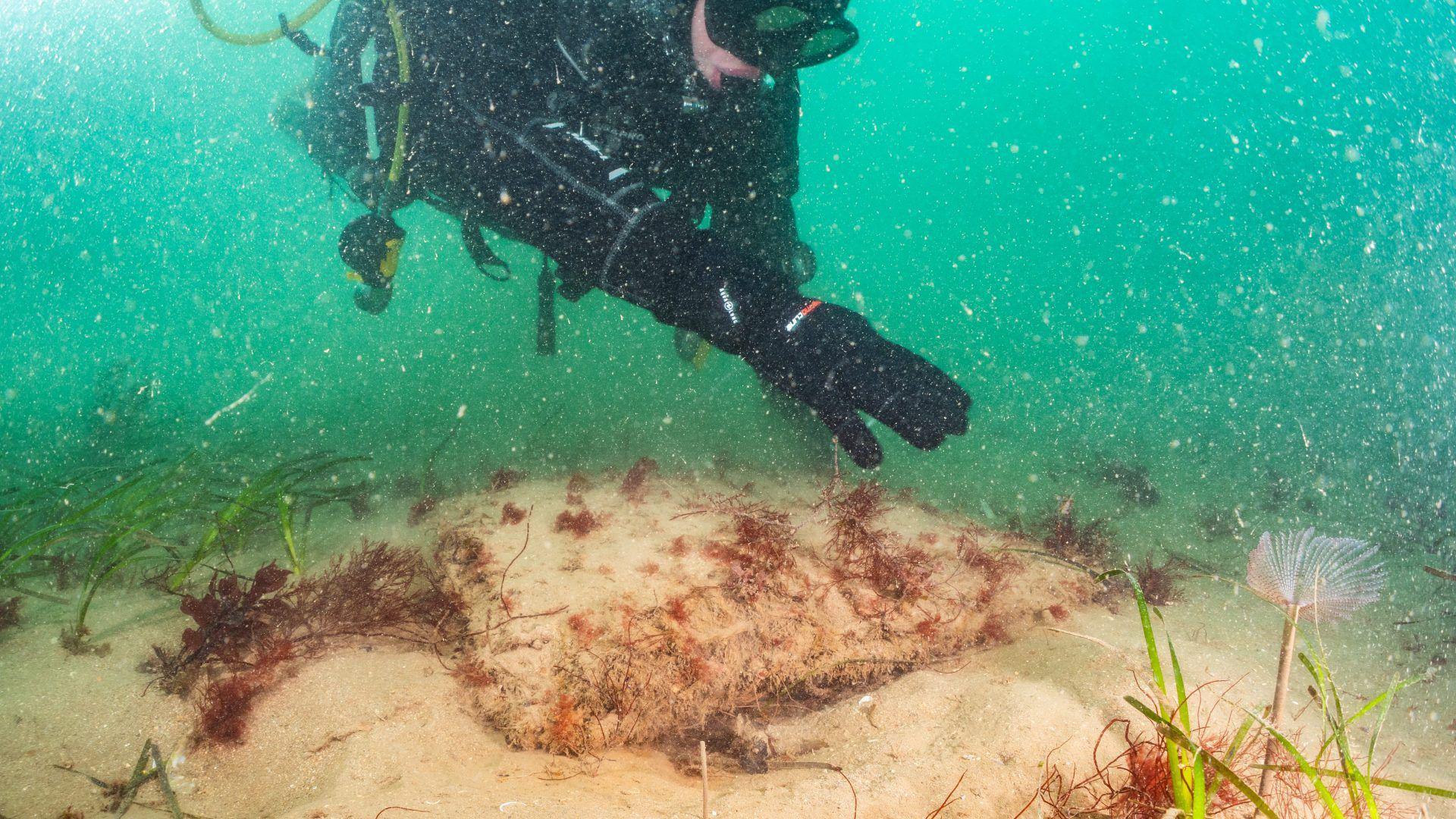
The project covered five sites on the south coast, with six hectares of seagrass in Plymouth Sound restored
Some of the seagrass planted in Plymouth Sound was cultivated in a special lab at the National Marine Aquarium in the city.
Mim Daughtery, seagrass aquaculture lead at the aquarium, said there was "so much about seagrass we're still learning".
She said: "We work with zostera marina, that species here can be completely different to the species that we have in Germany.
"We're still trying to bridge that gap in knowledge on how are we going to restore these and how to make them more resilient."
The OCT said it would continue to monitor the recovery at the sites over the long term.
Follow BBC Devon on X, external, Facebook, external and Instagram, external. Send your story ideas to spotlight@bbc.co.uk, external.
- Published7 June 2022
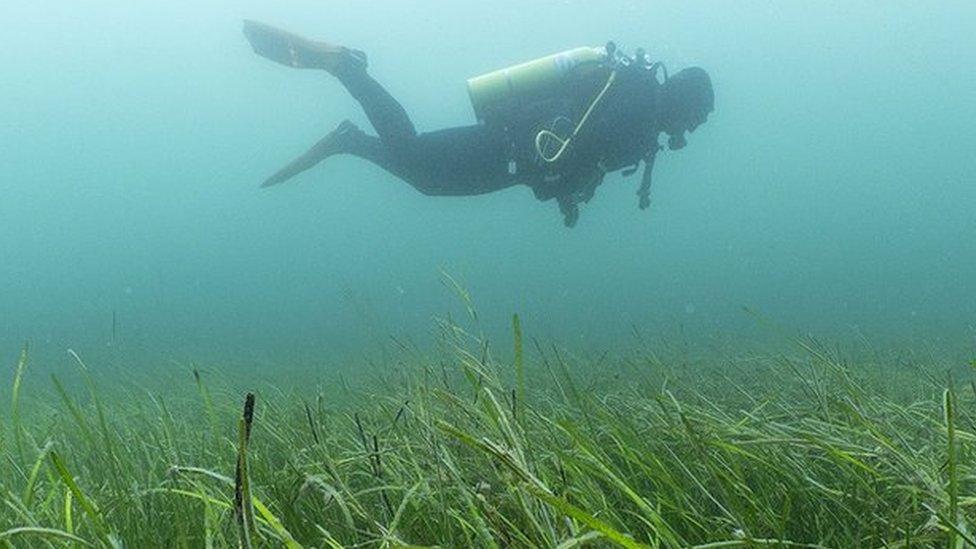
- Published3 May 2022
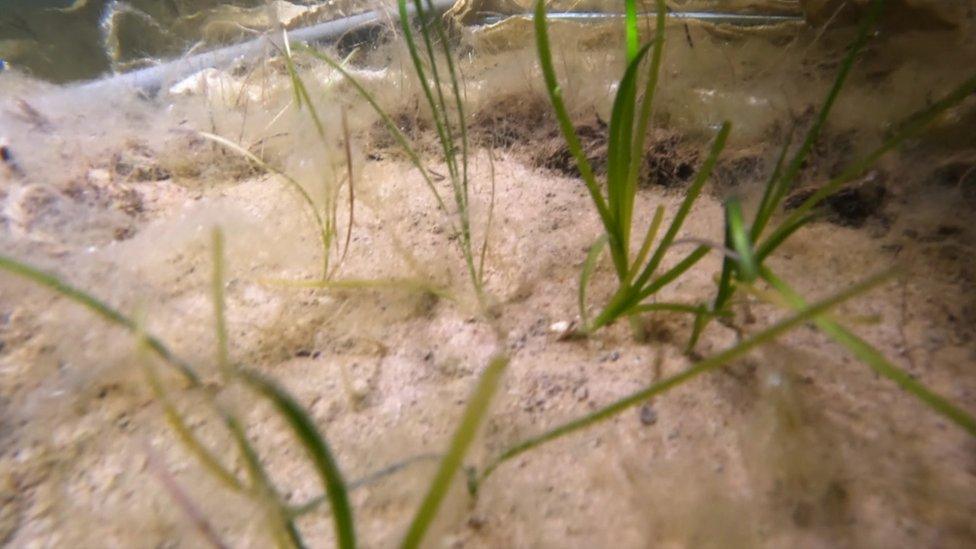
- Published16 March 2021
